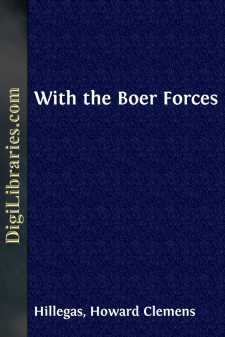Categories
- Antiques & Collectibles 13
- Architecture 36
- Art 48
- Bibles 22
- Biography & Autobiography 813
- Body, Mind & Spirit 142
- Business & Economics 28
- Children's Books 17
- Children's Fiction 14
- Computers 4
- Cooking 94
- Crafts & Hobbies 4
- Drama 346
- Education 46
- Family & Relationships 57
- Fiction 11829
- Games 19
- Gardening 17
- Health & Fitness 34
- History 1377
- House & Home 1
- Humor 147
- Juvenile Fiction 1873
- Juvenile Nonfiction 202
- Language Arts & Disciplines 88
- Law 16
- Literary Collections 686
- Literary Criticism 179
- Mathematics 13
- Medical 41
- Music 40
- Nature 179
- Non-Classifiable 1768
- Performing Arts 7
- Periodicals 1453
- Philosophy 64
- Photography 2
- Poetry 896
- Political Science 203
- Psychology 42
- Reference 154
- Religion 513
- Science 126
- Self-Help 84
- Social Science 81
- Sports & Recreation 34
- Study Aids 3
- Technology & Engineering 59
- Transportation 23
- Travel 463
- True Crime 29
Our website is made possible by displaying online advertisements to our visitors.
Please consider supporting us by disabling your ad blocker.
With the Boer Forces
Description:
Excerpt
CHAPTER I
Immediately after war was declared between Great Britain and the Boers of the Transvaal and the Orange Free State, the two South African republics became ostracised, in a great measure, from the rest of the civilised world. The cables and the great ocean steamship lines, which connected South Africa with Europe and America, were owned by British companies, and naturally they were employed by the British Government for its own purposes. Nothing which might in any way benefit the Boers was allowed to pass over these lines and, so far as it was possible, the British Government attempted to isolate the republics so that the outside world could have no communication of any sort with them. With the exception of a small strip of coast-land on the Indian ocean, the two republics were completely surrounded by British territory, and consequently it was not a difficult matter for the great Empire to curtail the liberties of the Boers to as great an extent as it was pleasing to the men who conducted the campaign. The small strip of coast-land, however, was the property of a neutral nation, and, therefore, could not be used for British purposes of stifling the Boer countries, but the nation which “rules the waves” exhausted every means to make the Boers’ air-hole as small as possible by placing a number of warships outside the entrance of Delagoa Bay, and by establishing a blockade of the port of Lorenzo Marques.
Lorenzo Marques, in itself, was valueless to the Boers, for it had always been nothing more than a vampire feeding upon the Transvaal, but as an outlet to the sea and as a haven for foreign ships bearing men, arms, and encouragement it was invaluable. In the hands of the Boers Delagoa Bay would have been worse than useless, for the warships could have taken possession of it and sealed it tightly on the first day of the war, but as a Portuguese possession it was the only friend that the Boers were able to find during their long period of need. Without it, the Boers would have been unable to hold any intercourse with foreign countries, no envoys could have been despatched, no volunteers could have entered the country, and they would have been ignorant of the opinion of the world—a factor in the brave resistance against their enemy which was by no means infinitesimal. Delagoa Bay was the Boers’ one window through which they could look at the world, and through which the world could watch the brave struggle of the farmer-citizens of the veld-republics.
The Portuguese authorities at Delagoa Bay long ago established a reputation for adroitness in extracting revenues whenever and wherever it was possible to find a stranger within their gates, but the war afforded them such excellent opportunities as they had never enjoyed before. Being the gate of the Boer country was a humanitarian privilege, but it also was a remunerative business, and never since Vasco de Gama discovered the port were so many choice facilities afforded for increasing the revenue of the colony....


